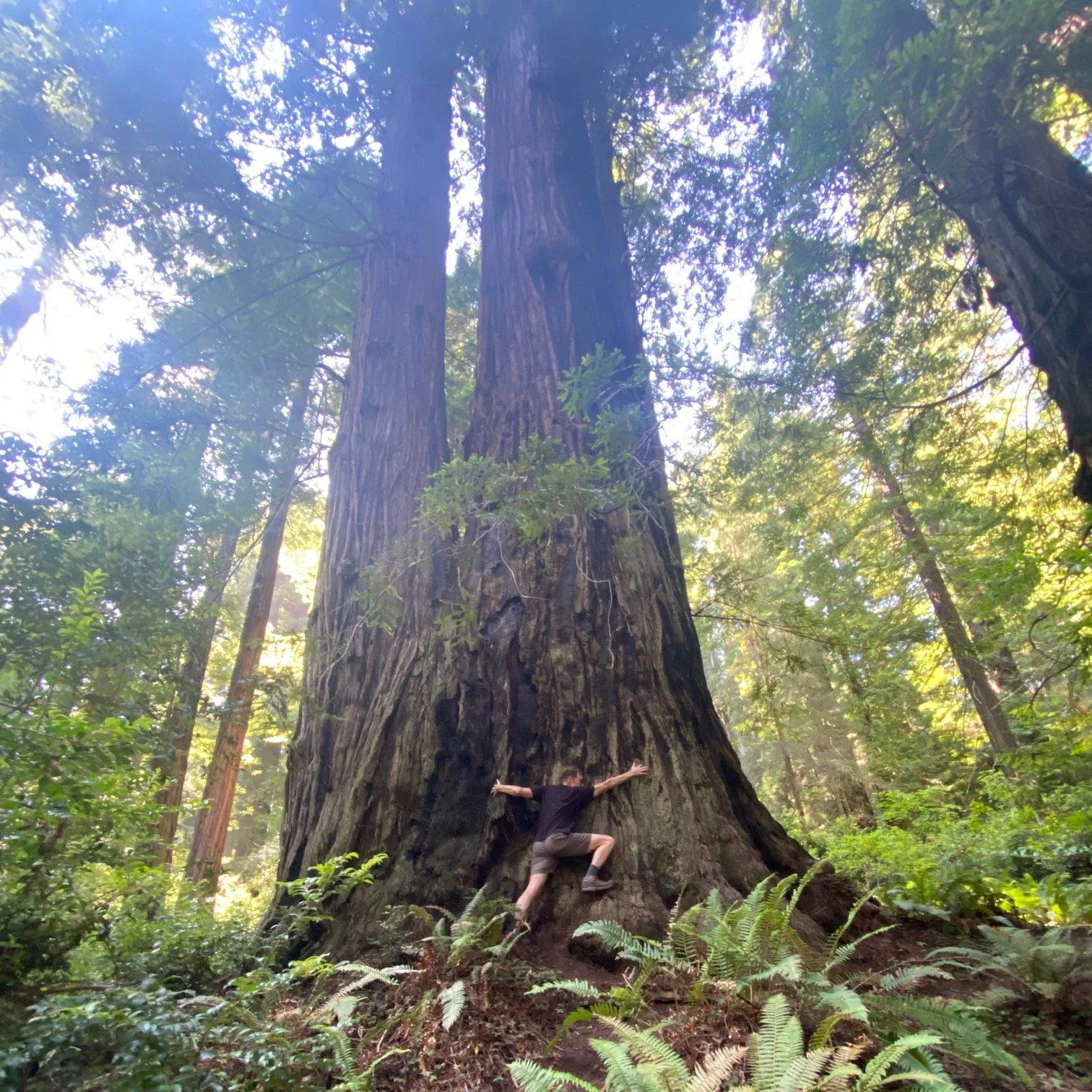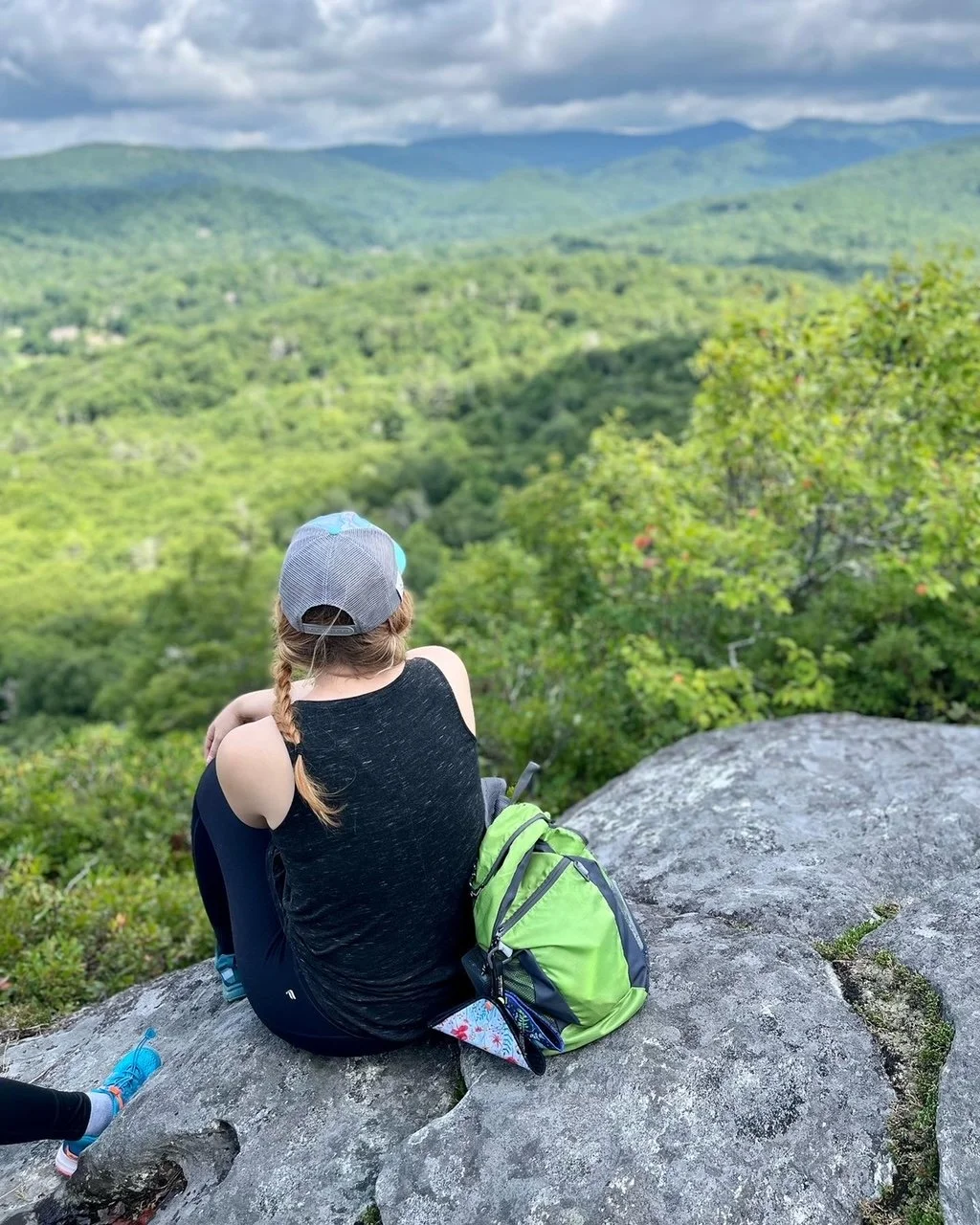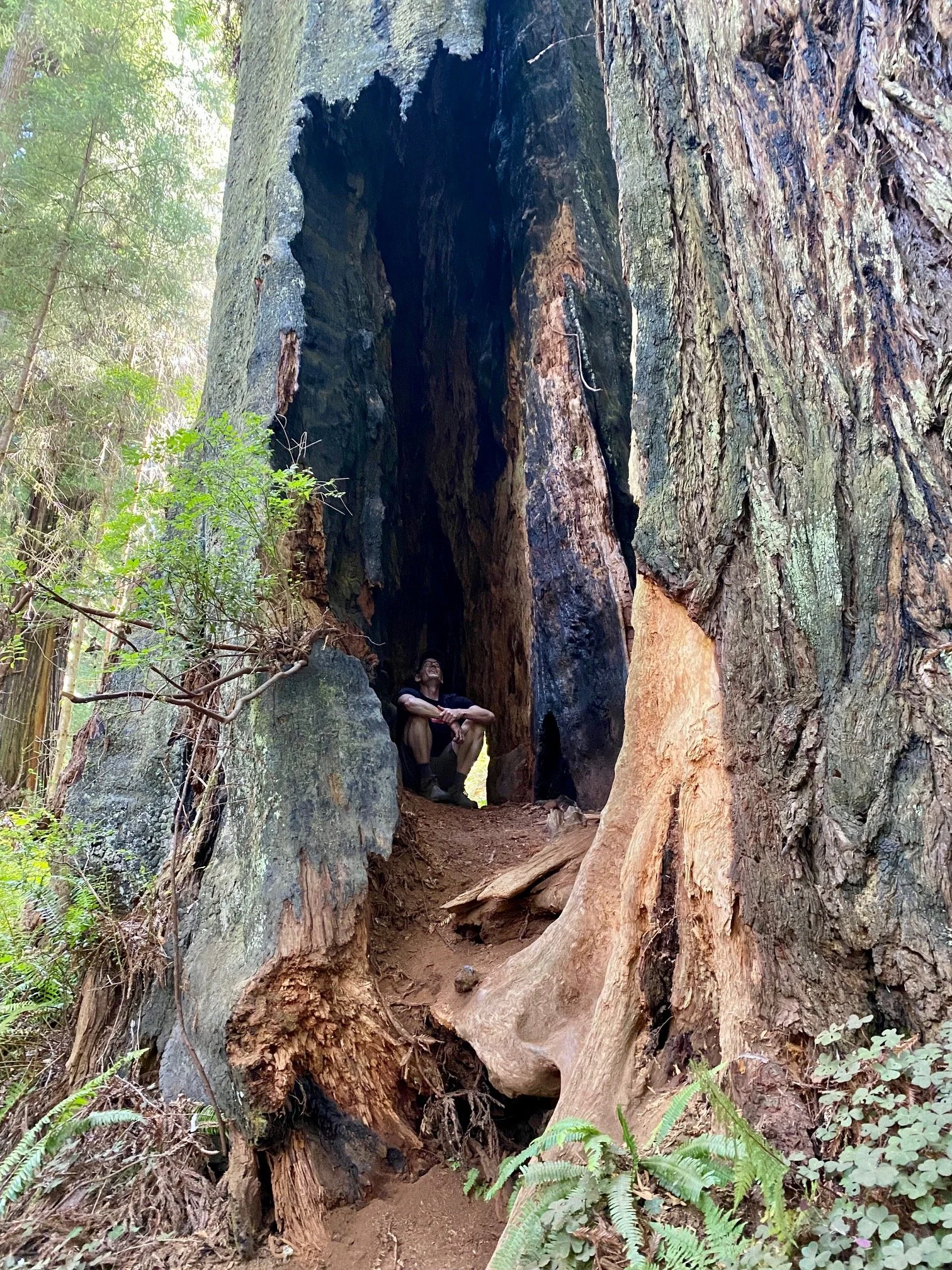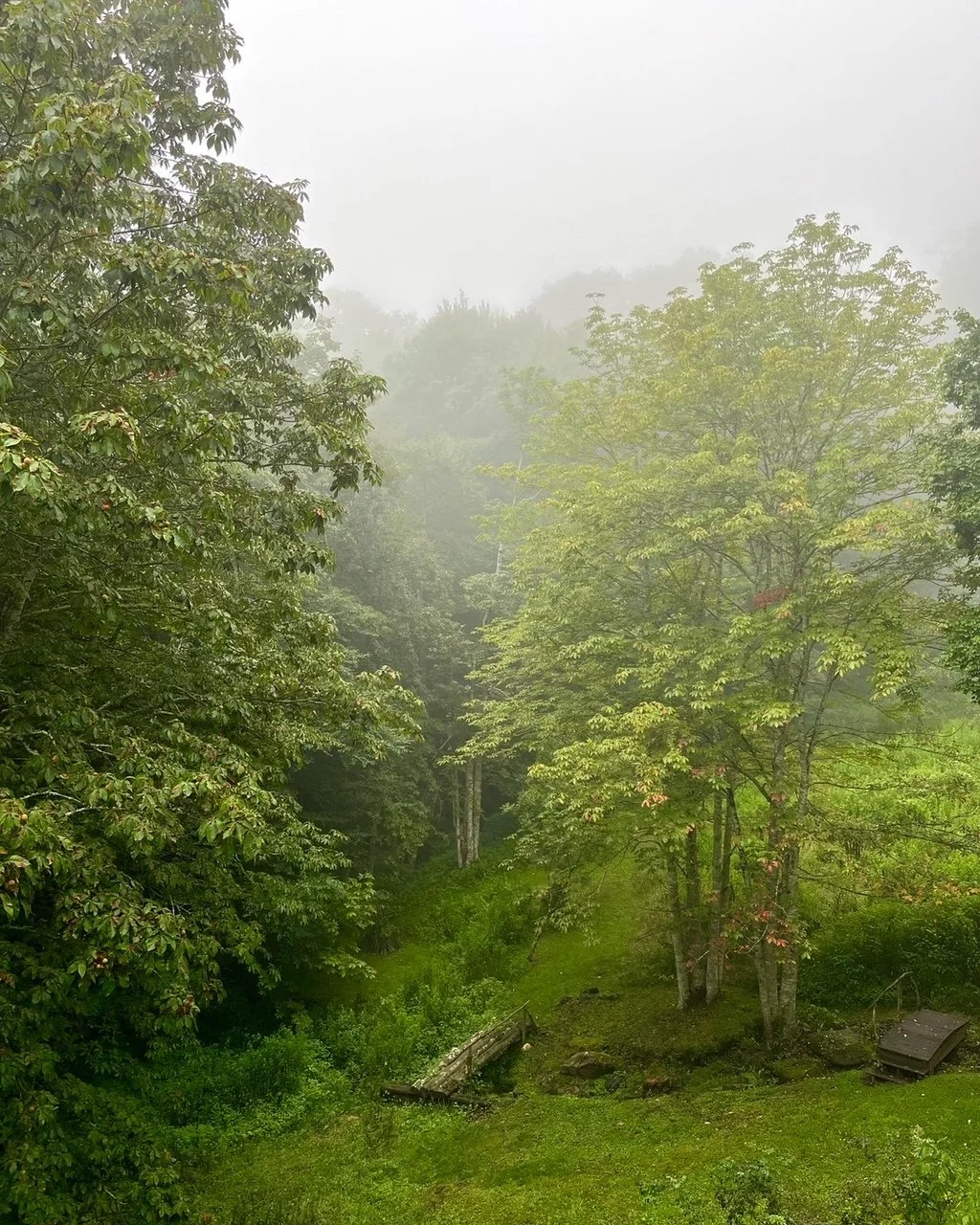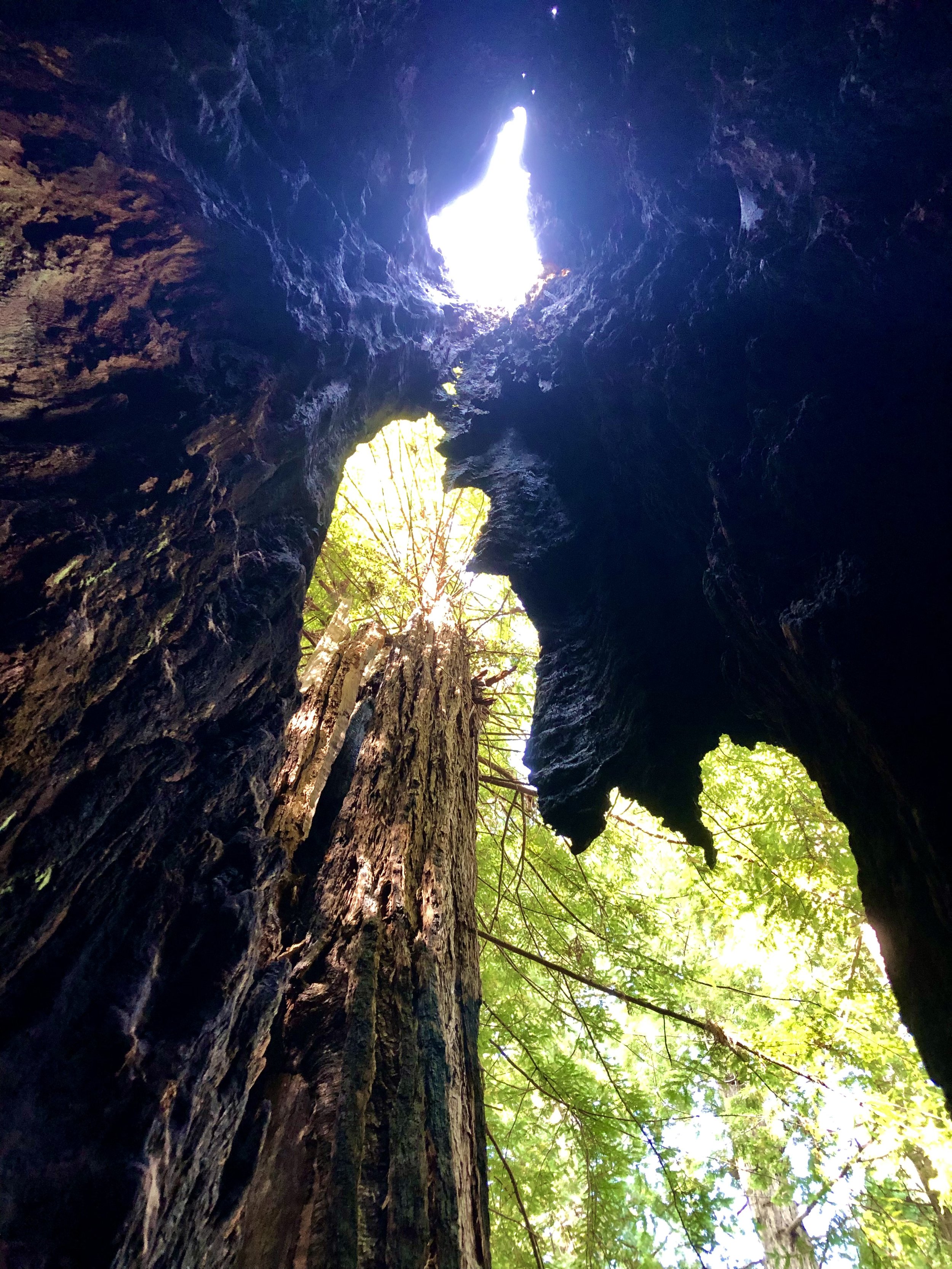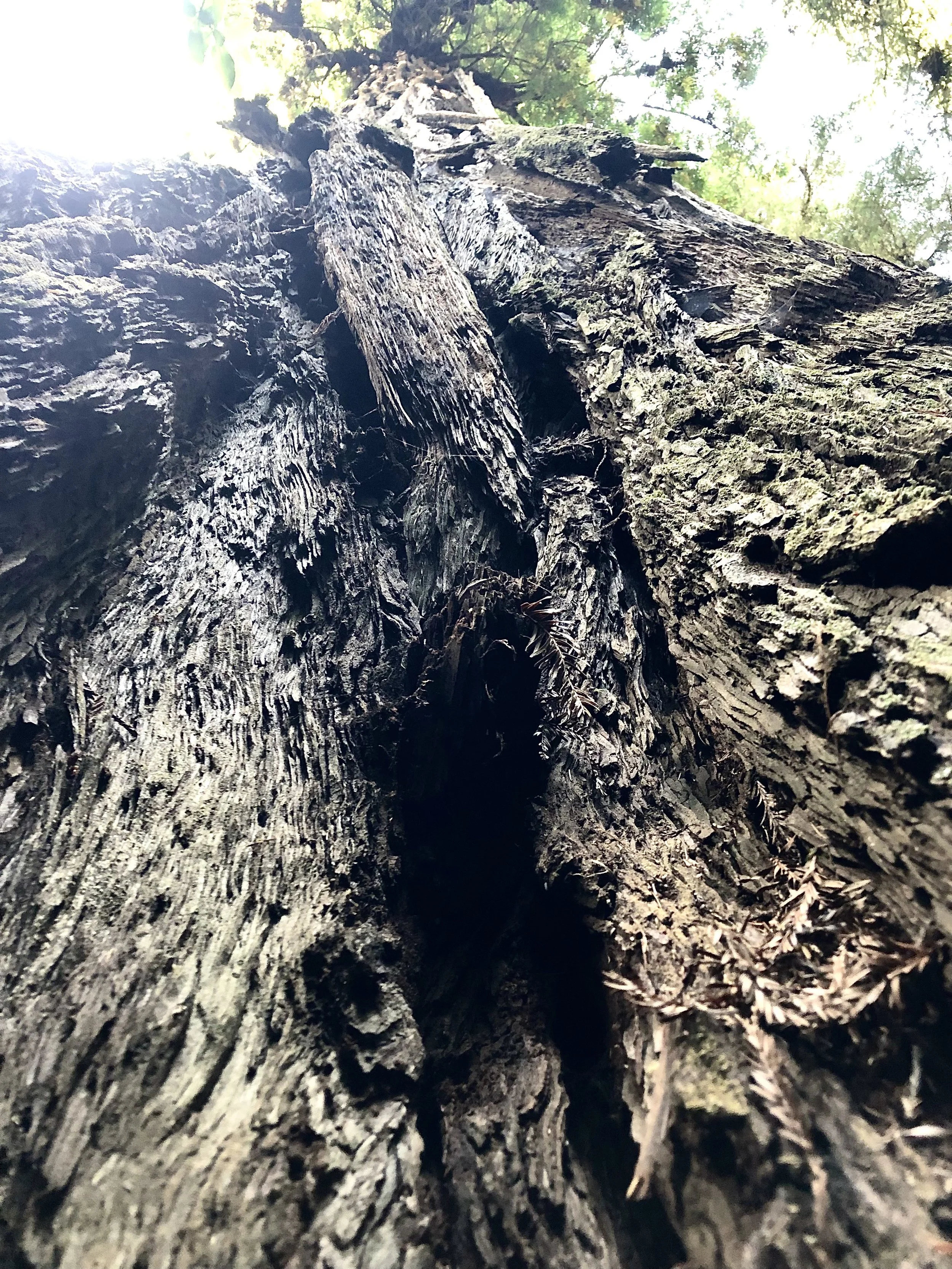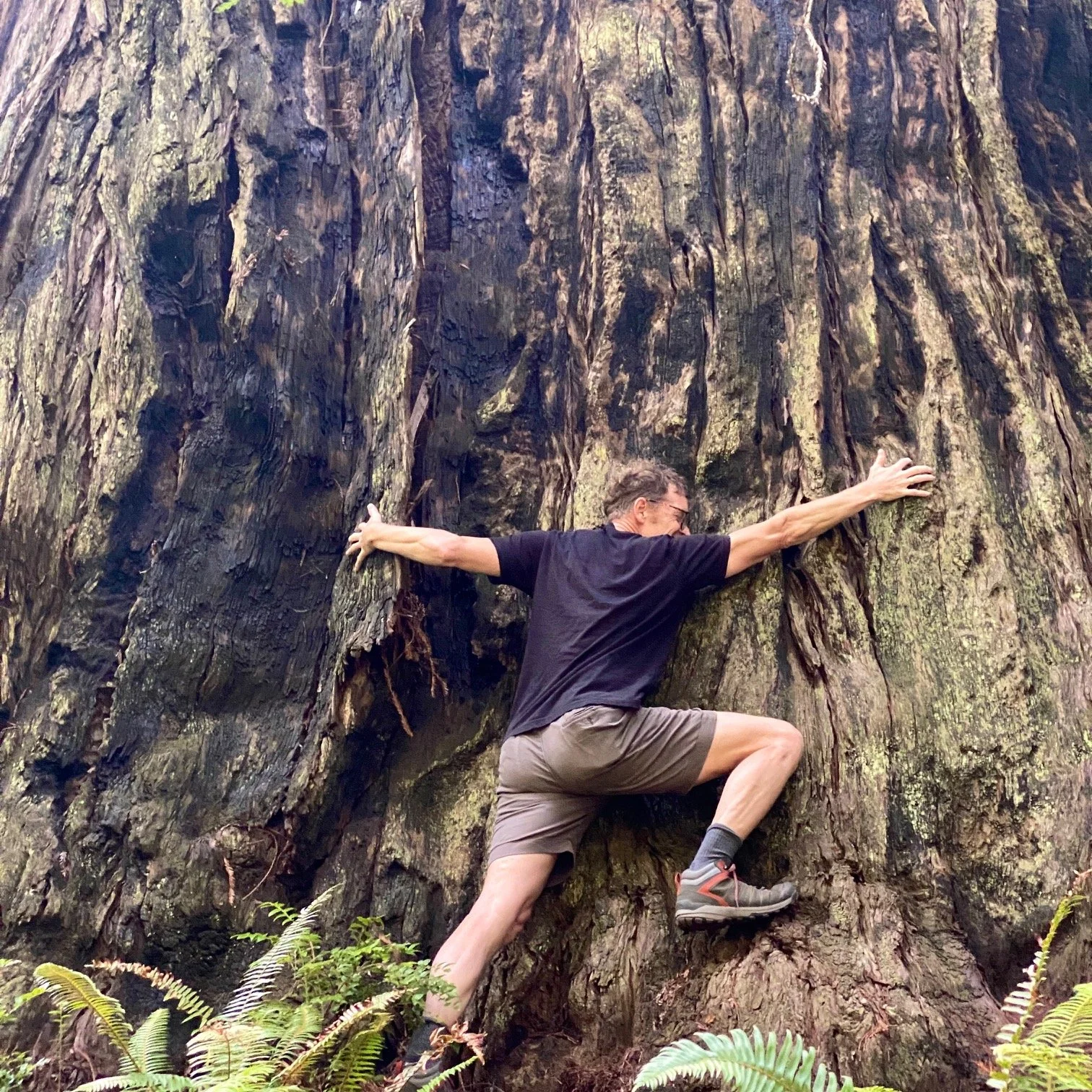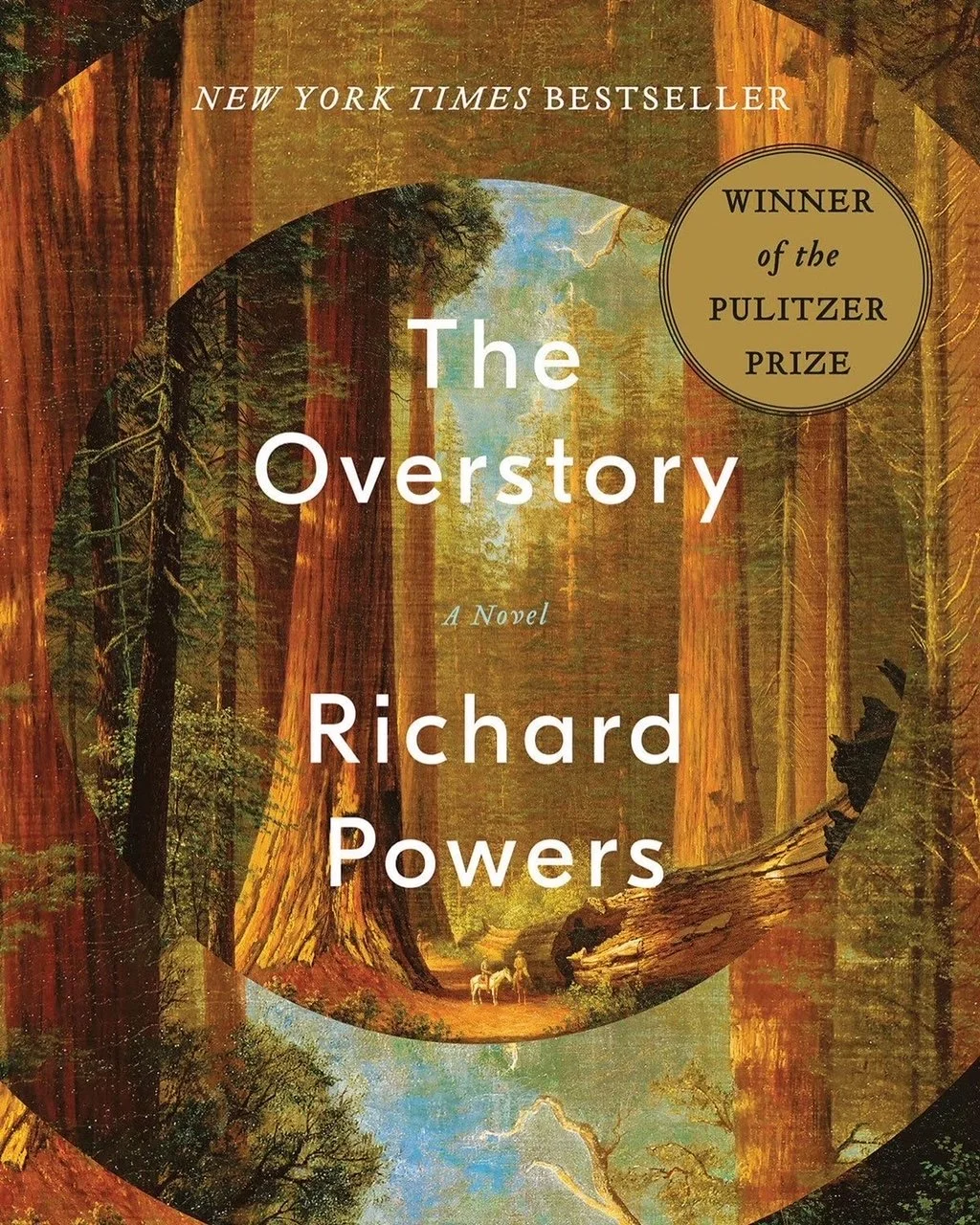In Awe of Trees
Is it possible to love trees as much as God loves them?
Likely not, but it's possible to get close, I thought, after reading Richard Powers' Pulitzer Prize-winning novel, The Overstory.
In the words of the PEN/Faulkner Award-winning author, Ann Patchett, it's “the best novel ever written about trees, and really, just one of the best novels, period.”
(If I could get away with it, I’d make it required reading in my theology class at Fuller Seminary in which we explore the doctrine of creation.)
In reading The Overstory, I felt utter awe for trees. And I felt small—really, really small. In a good way.
I also felt embarrassed that I'd never really felt such awe before and, even more so, that I'd never paid them the kind of attention that they deserve. Usually, to me, they're “just” trees.
During our recent summer vacation in the Blue Ridge Mountains in western North Carolina, our family encountered all sorts of trees: beech and elm and dogwood.
The backyard in our AirBnB rental included Black Walnut and Yellow Poplar.
Table Mountain Pine trees blanketed the hillsides of the Blue Ridge Parkway that we hiked.
We walked by Old Glory Maple trees in Banner Elk.
We wondered at the fact that Christmas tree farms seemed to dominate every single household lawn.
(The photographs on this post also include my encounter with Redwood Forests in Northern California. Good God, those trees were astonishingly majestic.)
In ways that are hard to grasp living in central Texas, the trees to which Powers bears witness—the American chestnut, Douglas fir, coastal redwoods—make sense of the prophet Isaiah's words in 55:12, that the redemptive work of the Lord will invariably cause all the trees of the field to clap their hands.
(And though I’ve yet to read this book, Reforesting Faith: What Trees Teach Us About the Nature of God and His Love for Us, I imagine that it will tell me much the same, and thank God for it.)
Reading Powers also brought to mind Gerard Manley Hopkins' poignant poem about trees, titled, "felled 1879," with which I end this brief reflection on trees.
My aspens dear, whose airy cages quelled,
Quelled or quenched in leaves the leaping sun,
All felled, felled, are all felled;
Of a fresh and following folded rank
Not spared, not one
That dandled a sandalled
Shadow that swam or sank
On meadow & river & wind-wandering weed-winding bank.
O if we but knew what we do
When we delve or hew —
Hack and rack the growing green!
Since country is so tender
To touch, her being só slender,
That, like this sleek and seeing ball
But a prick will make no eye at all,
Where we, even where we mean
To mend her we end her,
When we hew or delve:
After-comers cannot guess the beauty been.
Ten or twelve, only ten or twelve
Strokes of havoc unselve
The sweet especial scene,
Rural scene, a rural scene,
Sweet especial rural scene.
PS: (Them that ears to hear, let them hear.)
